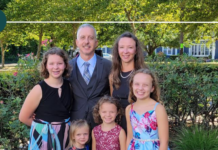Concussions can be a serious injury that can happen in all different kinds of situations and to anyone at any age. As we enter a season with potentially dangerous weather and are at the peak of Fall sports season, UnityPoint Health – Meriter’s Occupational Therapy team is myth busting some common misconceptions about concussions and how to treat them.
According to the Centers for Disease Control and Prevention, there were approximately 223,135 concussion or traumatic brain injury related hospitalizations in 2019 and nearly 64,362 traumatic brain injury related deaths in 2020. It’s important to note that not all concussions will require hospitalization or result in death, however understanding treatment and when to see a doctor is important.
What are concussions and the symptoms?
A concussion can be caused by a bump, blow or jolt to the head or by a penetrating injury. A concussion causes chemical and physiological changes in the brain, which can produce some side effects.
Symptoms of a concussion can include: Cognitive changes, anxiety, headaches or migraines, dizziness or imbalance, visual changes, eye fatigue, blurred vision, neck pain or a disruption of sleep.
Concussions can happen in to people of all ages, and in many different situations, such as sports, military duty, car accidents or a fall on ice.
Typically, concussions can be treated at home at can health within 7-10 days but in children can last up to four months.
Concussion myths
Myth: I need to be on strict bed rest and extremely limited activity when I have a concussion.
Fact: That’s not necessarily true! Occupational therapists may encourage light activity that will not aggravate symptoms. Symptoms might feel worse on day two or three. A good rule of thumb is do what you can, and don’t do what you can’t.
For some this might look like adjusting a work or school day to limit brightness and noise triggers such as a band class or bright grocery store lights until symptoms begin to subside.
Myth: I shouldn’t let myself fall asleep or should be woken up throughout the night if I have a concussion.
Fact: This is not true, in fact it’s quite the opposite! You can absolutely sleep when you have a concussion and getting the proper amount of sleep and rest is very important.
It’s important to that it’s going to get better and to try and limit anxiety, and rest for the first 24-28 hours after the injury occurs.
If symptoms persist or continue to get worse, you should consult with a primary care doctor for evaluation.
UnityPoint Health – Meriter provides convenient, personal care to patients in hospital and clinic settings. As a partner of UW Health, our team uses shared values to show our people and communities how much they matter. Offering primary and specialty care, including the busiest birthing center in Wisconsin, Meriter is regularly recognized for outstanding quality and patient experience.












